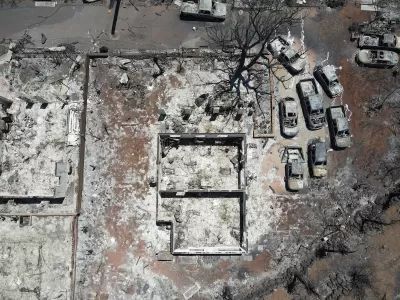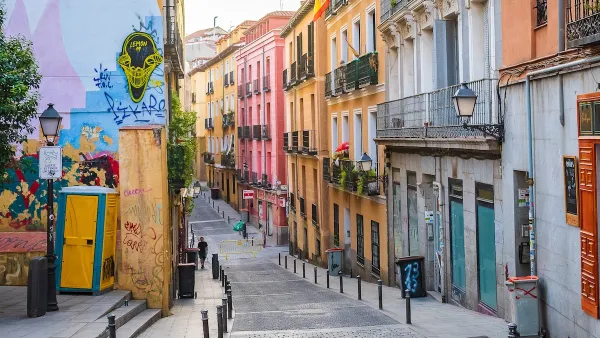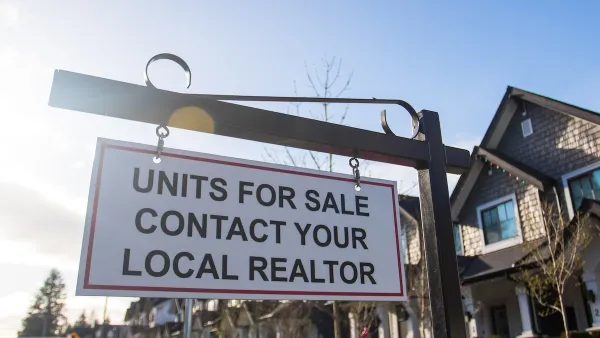Economists warn that reconstruction could put new housing out of reach for long-time residents.

“A Sept. 22 economic forecast from the University of Hawaii Economic Research Organization detailed how the housing landscape in Lahaina could change without government intervention,” writes Molly Bolan in Route Fifty. The report warns that “longtime residents who lost their homes could be permanently pushed out of their neighborhoods due to high housing costs.”
The situation, dubbed ‘disaster gentrification,’ isn’t unique to Lahaina, says Andrew Rumbach of the Urban Institute. “ In New Orleans, home prices skyrocketed in the years after Hurricane Katrina. In Boulder County, Colorado, an Urban Institute study tracking recovery from the 2021 Marshall Fire found that wealthy households were much more likely to rebuild their homes.”
Because Lahaina is primarily zoned for single-family homes that will be expensive to rebuild, “One way to help the community’s equitable recovery would be by upzoning lots to accommodate more multifamily housing, a solution Lahaina had initiated even before the fire.” Rumbach also suggests reconsidering short-term rental regulations to limit how many units can be listed in sites like Airbnb.
Justin Tyndall, an assistant professor of economics at the University of Hawai’i, says government affordable housing programs will be a key part of preventing displacement. “Only through these kinds of reforms, only through really good use of funding, will they be able to create housing that the folks who are displaced will be able to afford,” Tyndall says.
FULL STORY: ‘Disaster gentrification’ looms over Lahaina

Maui's Vacation Rental Debate Turns Ugly
Verbal attacks, misinformation campaigns and fistfights plague a high-stakes debate to convert thousands of vacation rentals into long-term housing.

Planetizen Federal Action Tracker
A weekly monitor of how Trump’s orders and actions are impacting planners and planning in America.

Chicago’s Ghost Rails
Just beneath the surface of the modern city lie the remnants of its expansive early 20th-century streetcar system.

Bend, Oregon Zoning Reforms Prioritize Small-Scale Housing
The city altered its zoning code to allow multi-family housing and eliminated parking mandates citywide.

Amtrak Cutting Jobs, Funding to High-Speed Rail
The agency plans to cut 10 percent of its workforce and has confirmed it will not fund new high-speed rail projects.

LA Denies Basic Services to Unhoused Residents
The city has repeatedly failed to respond to requests for trash pickup at encampment sites, and eliminated a program that provided mobile showers and toilets.
Urban Design for Planners 1: Software Tools
This six-course series explores essential urban design concepts using open source software and equips planners with the tools they need to participate fully in the urban design process.
Planning for Universal Design
Learn the tools for implementing Universal Design in planning regulations.
planning NEXT
Appalachian Highlands Housing Partners
Mpact (founded as Rail~Volution)
City of Camden Redevelopment Agency
City of Astoria
City of Portland
City of Laramie





























